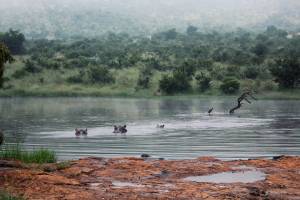
The Road to Recovery: Navigating Kruger National Park After the 2026 Floods
For decades, the Kruger National Park has stood as the crown jewel of African conservation...
 23 February 2026
23 February 2026 
Every July, the charming Cape Winelands town of Franschhoek embraces its French heritage with one of the Western Cape’s most anticipated winter events – the Franschhoek Bastille Festival. The 2025 edition promises an unforgettable mix of food, wine, culture, and entertainment, set against the dramatic backdrop of snow-dusted mountains and vineyard-lined valleys.
Only 75 km from Cape Town and around 70 km from Cape Town International Airport, Franschhoek is an easy and scenic drive away, making it a perfect weekend escape or day trip. Whether you’re a wine enthusiast, history lover, or simply looking for an atmospheric winter celebration, the Bastille Festival is an ideal reason to explore this historic corner of the Cape.
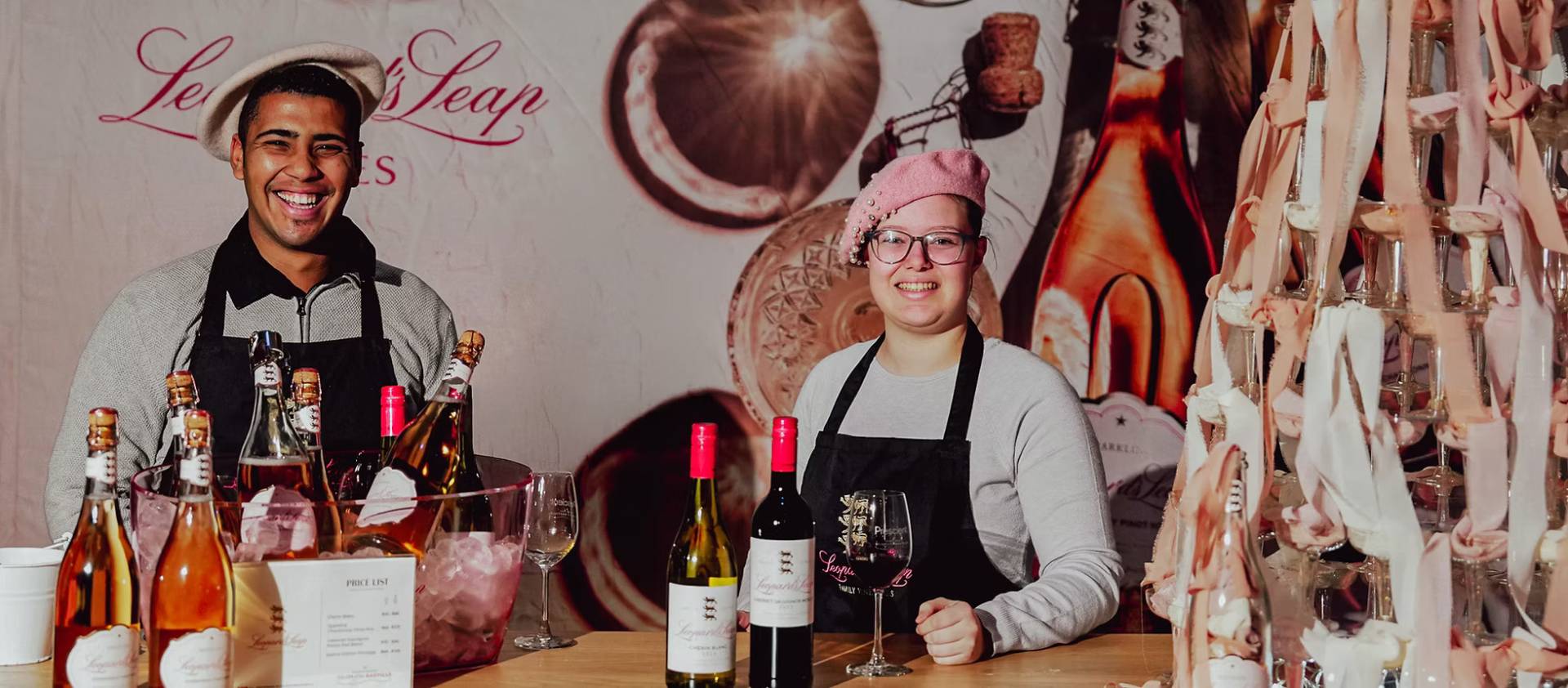
The festival honours the town’s French Huguenot roots with a lively celebration | Photo: Franschhoek Bastille Festival
The Franschhoek Bastille Festival was first held in 1993 and has since become a fixture on South Africa’s cultural calendar. Taking inspiration from France’s Bastille Day on 14 July, the festival honours the town’s French Huguenot roots with a lively celebration of all things French and local.
In 2025, the festival is expected to take place over the weekend of 12-13 July. Franschhoek’s main road transforms into a hub of activity, with street performers, musicians, and market stalls creating a carnival atmosphere. Locals and visitors alike don red, white, and blue attire, with many adding a touch of French flair to their outfits.
At the heart of the festivities is the Food and Wine Marquee – a ticketed area where top Franschhoek wineries and gourmet producers offer tastings of their finest creations. Here, you can sip award-winning wines, sample artisanal cheeses and charcuterie, and enjoy dishes prepared by some of the region’s leading chefs.
Beyond the marquee, the festival also features pétanque competitions, a French-inspired food market, live music, children’s activities, and boutique shopping. It’s a family-friendly affair with plenty to see and do, whether you’re attending for a few hours or the entire weekend.
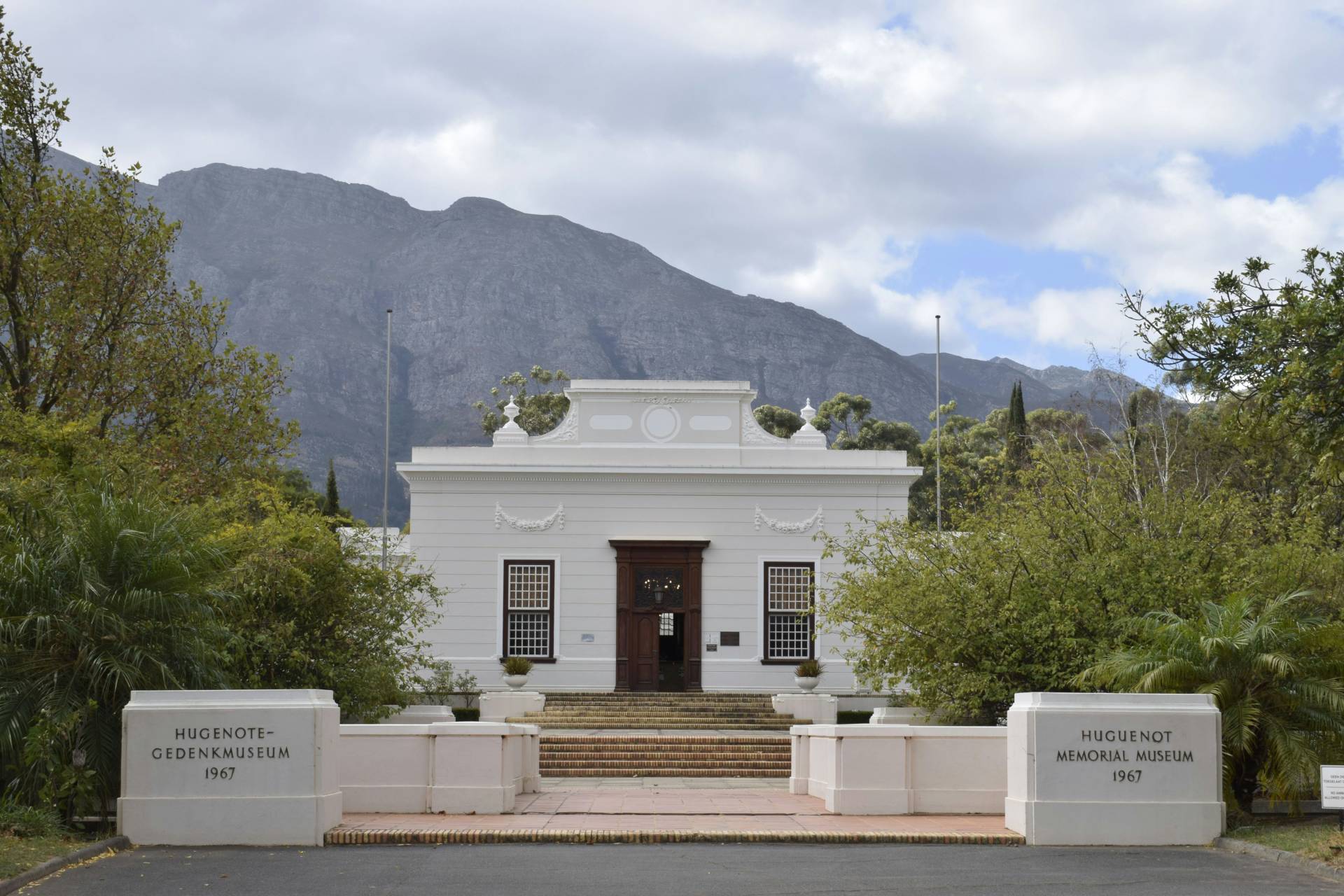
Over time, the valley became known as Franschhoek – meaning “French Corner” | Photo: Franschhoek Bastille Festival
Franschhoek’s story begins in the late 17th century, when a group of French Huguenots – Protestant refugees fleeing religious persecution in France – arrived at the Cape of Good Hope. The Dutch government granted them land in a fertile valley originally known as Oliphants Hoek (Elephant’s Corner) due to the large herds that once roamed the area. Yes, that’s correct – elephants once lived in the Cape Winelands!
Over time, the valley became known as Franschhoek – meaning “French Corner” – in honour of the settlers who brought their language, customs, and viticulture knowledge to the region. These settlers played a significant role in establishing the Cape’s wine industry, planting some of the first vineyards in what would become one of South Africa’s premier wine-producing areas.
The town’s French influence is still evident today in its architecture, street names, and cultural traditions. Landmarks like the Huguenot Monument and Huguenot Memorial Museum tell the story of these early settlers and their legacy, making a visit to Franschhoek both a scenic and historically enriching experience.

The valley is home to over 40 wine estates | Photo: Franschhoek Bastille Festival
Franschhoek is widely regarded as the culinary capital of South Africa. It boasts a concentration of award-winning restaurants, fine-dining establishments, and boutique wineries within a relatively compact area. For food and wine lovers, the Bastille Festival is an opportunity to experience the best of Franschhoek’s offerings in one place.
The valley is home to over 40 wine estates, many of which are family-run and located on historic farms. From bold reds to elegant Méthode Cap Classique (MCC) sparkling wines, Franschhoek’s wineries produce a wide variety of styles. Notable estates such as Haute Cabrière, La Motte, and Grande Provence have earned international recognition, yet there are also smaller, lesser-known producers offering equally memorable tasting experiences.
In addition to wine, Franschhoek is known for its fine cuisine. Many of the restaurants champion farm-to-table dining, sourcing ingredients from local farms and producers. During the festival, this culinary excellence is brought into the streets, with food stalls and pop-ups serving everything from duck confit to French pastries and gourmet burgers.
For those who want to explore further, the Franschhoek Wine Tram offers a unique way to visit multiple estates in a single day, but during the festival weekend, it’s advisable to book well in advance.
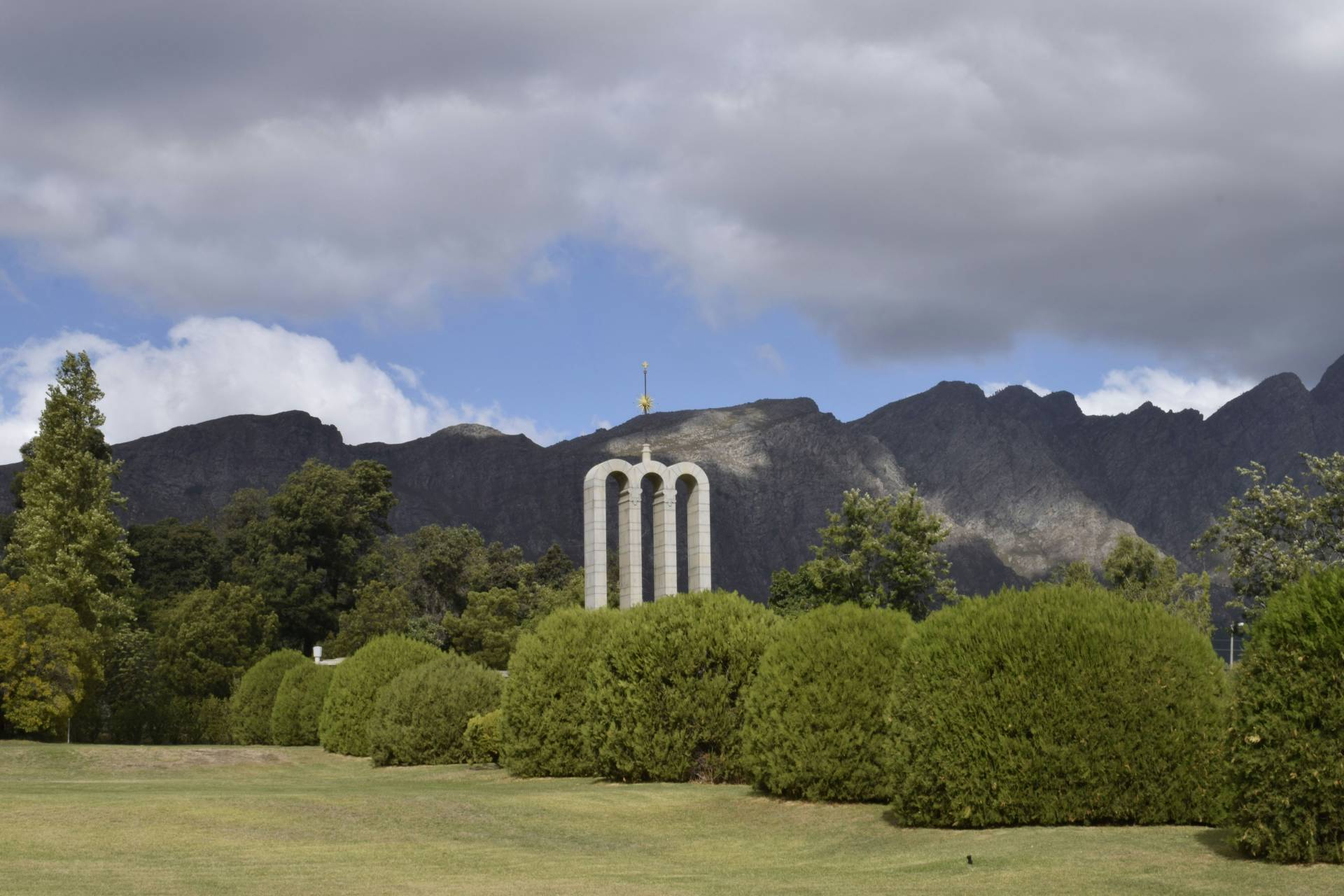
Visitors often use Franschhoek as a base for exploring the broader Winelands | Photo: Franschhoek Bastille Festival
Franschhoek is just one gem in the broader Cape Winelands region, which also includes Stellenbosch, Paarl, and Wellington. A short drive in any direction will lead you to more wineries, scenic drives, mountain passes, and hiking trails.
Stellenbosch, about 30 minutes away, offers a blend of youthful energy and historic charm, thanks to its university and well-preserved Cape Dutch architecture. Paarl is known for its heritage buildings, natural beauty, and robust reds, while Wellington offers off-the-beaten-track experiences for those seeking a more rustic setting.
Visitors often use Franschhoek as a base for exploring the broader Winelands, with many opting for a weekend itinerary that includes visits to neighbouring towns, wine farms, and nature reserves such as Mont Rochelle and Jonkershoek.
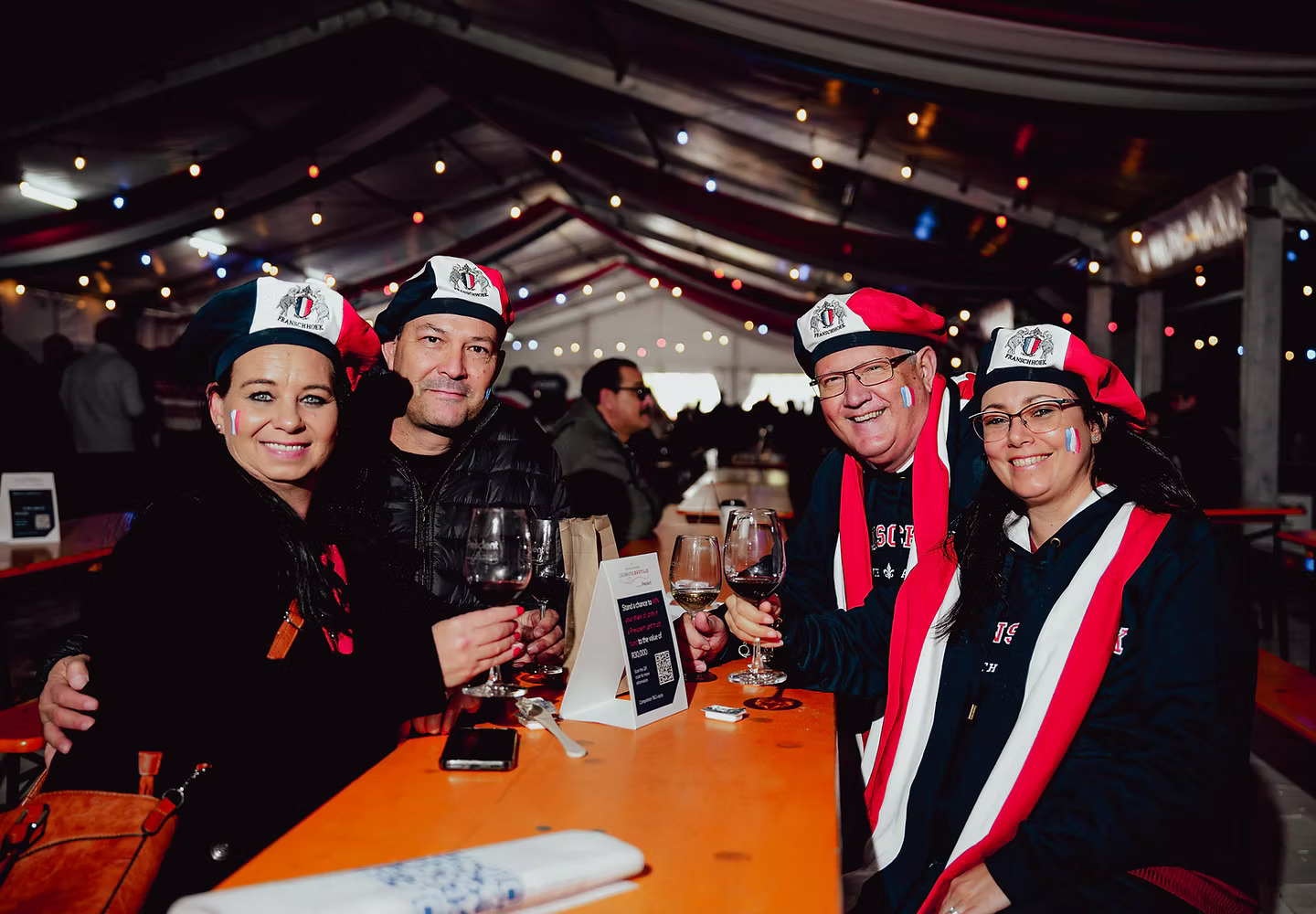
If you’re planning to indulge in wine during the festival, consider arranging accommodation | Photo: Franschhoek Bastille Festival
Public transport options to Franschhoek are limited, especially during the festival when services are stretched and often unavailable late into the evening. Hiring a car is by far the most convenient and flexible way to travel to and around the region.
From Cape Town International Airport, the drive to Franschhoek takes just over an hour via the N1 highway and R45 – a scenic route that passes through Paarl and the Drakenstein Mountains. The roads are generally well maintained, and with your own vehicle, you can set your schedule, stop at viewpoints, and visit out-of-the-way wine farms that are inaccessible by other means.
A hired car also gives you the freedom to explore more of the Winelands before or after the festival without relying on group tours or transfers. Whether you want to stay overnight in a cosy guesthouse or return to Cape Town the same day, having your own transport makes the experience significantly easier.
It’s also worth noting that many wine estates offer safe parking and designated driver services or can recommend local transport providers for tastings. If you’re planning to indulge in wine during the festival, consider arranging accommodation within walking distance of the village centre or coordinating a shuttle with your guesthouse.
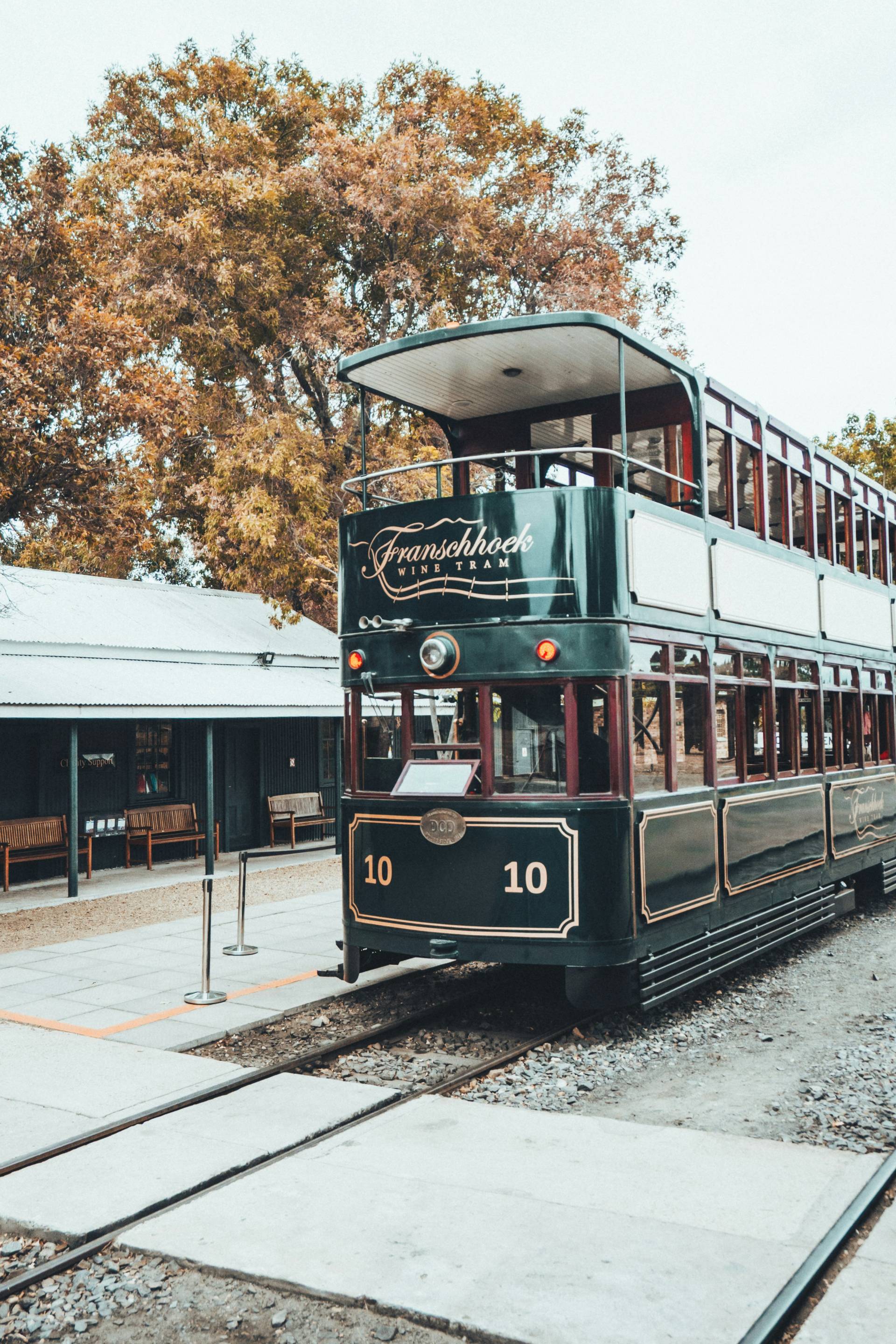
Secure your tickets and prepare for a memorable celebration in the heart of the Cape | Photo: Franschhoek Bastille Festival
The Franschhoek Bastille Festival is more than just a weekend event – it’s a celebration of heritage, hospitality, and the unique character of the Cape Winelands. Whether you’re drawn by the promise of fine wine, French flair, or a relaxed winter getaway, the 2025 festival offers a perfect excuse to visit one of South Africa’s most picturesque regions.
Hiring a car will help you make the most of your time in Franschhoek and beyond, giving you the freedom to explore at your own pace and discover the hidden gems of the Winelands. Start planning your trip early, secure your tickets, and prepare for a memorable celebration in the heart of the Cape.